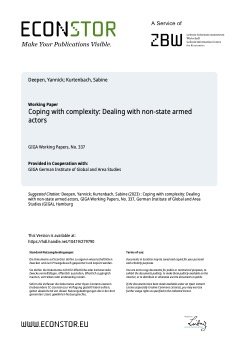By Andrew Gilligan and Paul Stott
• The Government’s “Rapid Analytical Sprint” to determine its policy on extremism has been leaked to Policy Exchange. • It says the UK’s approach to extremism should no longer be based on “ideologies of concern” but on a very wide range of “behaviours,” including violence against women and girls, “spreading misinformation and conspiracy theories,” an interest in gore or extreme violence, misogyny, or involvement in “an online subculture called the manosphere.” It admits itself that many who display such behaviours are not extremist. • This approach could swamp already stretched counter-extremism staff and counter-terror police with thousands of new cases, increasing the risk that genuinely dangerous individuals are missed. It risks addressing symptoms, not causes. • The Sprint de-centres and downplays Islamism, by far the greatest threat to national security. It acknowledges “left-wing, anarchist and single issue (LASI) extremism,” “environmental extremism” and Hindu extremism as distinct phenomena that counter-extremist policy should tackle. The left may object to the first two; others will welcome it. • The Sprint will raise concerns over freedom of speech. It says claims of two-tier policing are a “right-wing extremist narrative.” It recommends the reversal of moves to cut police use of “non-crime hate incidents.” A new crime of making “harmful communications” online – rejected by the previous government on freedom of speech grounds - is floated. • The Sprint may have been influenced by the events of Southport. But as in the Prime Minister’s remarks after the killer’s guilty pleas last week, it risks confusing extreme violence with extremism, or extremism with any shocking crime, bad belief or nasty social phenomenon about which we are worried. • What happened in Southport was more an operational than a policy failing. The murderer had shown he was dangerous many times over several years before he killed anyone. In a more operationally effective policing and justice system, action would have been taken against him sooner, even without having to first label him an extremist. • There is a case, as the former counter-terror policing chief Neil Basu has said, for creating a “non-extremist” version of Prevent aiming to interdict people, such as the Southport killer, with an interest in violence but no obvious ideological or political motivation. The recommendation by a previous reviewer of Prevent, William Shawcross, that the current programme is the wrong place for dealing with the psychologically unstable has been ignored, even repudiated, in the Sprint. It should be acted on. • There are several sensible proposals, including the creation of a new Ministerial Counter-Extremism Board to coordinate policy.
London: Policy Exchange, 2025. 30p.







